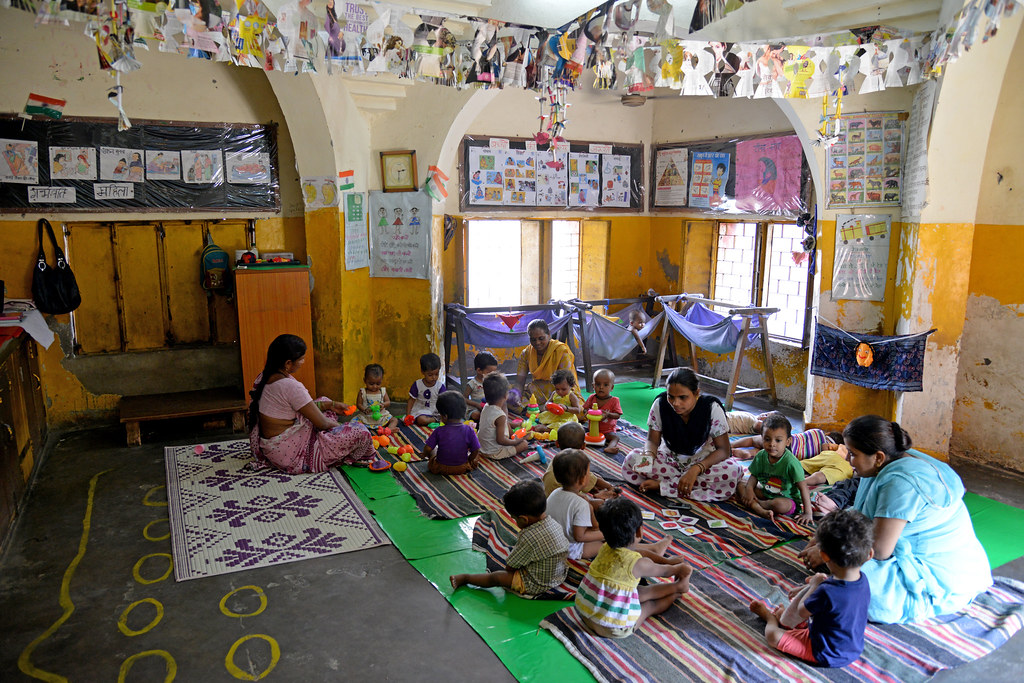In the evolving landscape of Indian society, the role of women has seen a significant transformation. Women are increasingly contributing to the workforce, breaking barriers, and shattering glass ceilings across various sectors. However, as they step into these new roles, the challenges they face are multifaceted. While the Indian government has made commendable strides in ensuring women’s safety in the workplace, there is another critical aspect that requires attention—the security and well-being of their children.
The responsibilities of working mothers extend beyond the confines of their jobs. Balancing professional duties with the demands of motherhood is a delicate act, especially in nuclear families where the support system is often limited. The need for a comprehensive approach that addresses both workplace safety and childcare is crucial for fostering an inclusive and equitable society.
The Need for Childcare Security
The Indian government should prioritize the development and implementation of policies that ensure the security and well-being of children while their mothers are at work. Safe, affordable, and accessible childcare options are not just a luxury but a necessity for working mothers. Without these, women are often forced to make difficult choices between their careers and their families.
By introducing policies that provide robust childcare support, the government can empower women to manage their professional and parental responsibilities more effectively. This support could take various forms, including government-funded daycare centers, tax benefits for parents, or incentives for companies/departments to establish in-house childcare facilities.
Proposed Measures for Supporting Working Mothers
To further support working women, particularly in nuclear families, a set of innovative measures could be introduced:
Five-Year Leave Option: Allow working women to take up to five years of leave to raise their children. During this period, they would receive 20% of their original pay. This option acknowledges the importance of early childhood care and provides mothers with the flexibility to focus on their families without completely detaching from the workforce.
Work-from-Home Alternative: For women who prefer to continue working, a work-from-home option for up to five years could be provided, with a reduced pay of 50%. This alternative not only supports work-life balance but also ensures that women remain connected to their professional roles, albeit in a more flexible manner.
Policy Applicability Across Sectors: These measures should be applicable to women working in any department or post, ensuring that no woman is left behind, regardless of her job or position.
Potential Benefits
Enhanced Work-Life Balance: Women would no longer have to choose between their careers and their families. The proposed measures would allow them to focus on their families during critical years while maintaining a connection to their professional lives.
Reduced Stress and Improved Well-being: Flexible work arrangements would significantly reduce the stress associated with juggling work and family responsibilities. This, in turn, could lead to better mental and physical health outcomes for working mothers.
Increased Productivity: When women eventually return to full-time work, they are likely to be more focused and productive, having had the opportunity to care for their children without the pressure of compromising their careers.
Challenges and Considerations
Implementation: The successful implementation of these policies would require detailed guidelines and a robust infrastructure. The government and private organizations would need to collaborate to create an environment that supports these initiatives.
Financial Implications: While the proposed pay during leave or work-from-home periods is reduced, there could be long-term financial implications for women. This aspect would need careful consideration to ensure that women’s long-term financial stability is not adversely affected.
Career Progression: Time away from work or reduced working hours could impact career advancement opportunities. The government and employers would need to find ways to mitigate this, perhaps through mentorship programs or re-skilling initiatives.
Social and Cultural Factors: For these policies to be truly effective there needs to be a shift in societal attitudes towards childcare and work-life balance. Encouraging a culture that values and supports the dual roles of women as professionals and mothers is essential for the success of these measures.
The time has come for a holistic approach that not only ensures women’s safety in the workplace but also addresses the security and well-being of their children. By implementing policies that provide flexible work arrangements and support for child-rearing, the Indian government can empower women to thrive both at work and at home. This, in turn, will contribute to a more inclusive and equitable society, where women are not forced to choose between their careers and their families but are supported in fulfilling both roles with dignity and respect.

Arvind Sharma is an award winning bi-lingual journalist with more than 20 years of experience.
He has worked with Divya Himachal, Dainik Jagran, Dainik Bhasker, Vir Partap, Ajit and PTI.
In 2010, he was conferred the Himachal Kesri journalism award. He reports on the Tibetan Government in Exile, politics, sports, tourism and other topics. He lives in Dharamshala.





